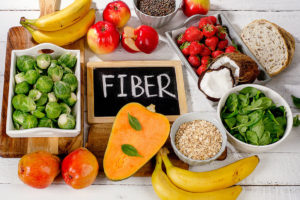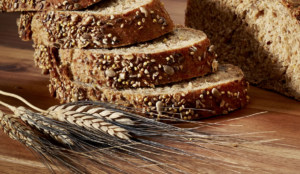People from many generations can attest to the power and benefits of high dietary fiber intake in many parts of your body. There are only a few minerals and vitamins that have the ability to benefit many systems the way fiber can. Mostly known to aid in digestion, it plays a role in preventing tooth decay in a very passive way yet has strong effects.
Our body has no ability to digest or break down the fiber. It is also a carbohydrate but unlike the others it does not get broken down into sugar molecules. It comes out of our body Humans are not equipped with the enzyme that breaks down fiber, unlike the animals. You can get your daily dietary fiber from fruits, vegetables, whole grain foods, beans, and legumes.
There are two types of fiber. The type of fiber depends on what food you eat. Soluble fiber comes from apples, carrots, barley, and oats. Insoluble fiber can be found in nuts, cauliflower, whole-wheat flour, and potatoes.
Soluble. This type of fiber can dissolve in water and turns into a gel inside our body. This helps in lowering the blood cholesterol and sugar.
Insoluble. This type of fiber does not dissolve in water and helps mainly in aiding in digestion. This sweeps your digestive tract and regulates bowel movement.
It might come as a surprise that dietary fiber also helps your teeth prevent tooth decay, as proved by dentist downtown Mesa Arizona. Digestion starts in our mouth. The act of mastication or chewing is our body’s way of grinding and turning food into smaller particles. The rigid and tough texture of fiber-rich foods makes us chew a bit longer than usual. This benefits our teeth many ways. Chewing promotes and triggers our salivary gland to produce more saliva. Saliva contains the enzymes that break down the carbohydrates that you eat into simple sugars.
Your saliva helps in washing away food particles and bad bacteria from your mouth. It keeps the ph balance of your mouth. The bad bacteria in your mouth thrive in the acidic environment. When you eat fiber-rich foods, saliva lessens the acidity of your mouth. The bacteria usually clump together in the form as plaque and scrape the teeth to penetrate further. Dental plaques are usually seen along the tooth’s gum line where it slowly softens the enamel of the tooth. Eating and chewing fiber-rich foods help in polishing and scrubbing the teeth that makes it hard for plaque to stick. It also takes away food particles that are stuck in between your teeth. Accumulated plaque can also be brushed by chewing and biting into dietary fiber sources. It also gives your gums gentle massage that promotes tissue formation and blood flow.
Always opt for the whole foods rather than supplements or drinks that have fiber. Your teeth and gums will gain more benefits when you get to chew dietary fiber food sources. It’s best to build-up your fiber intake within the week than consuming large amounts in one go.
If you want to prevent tooth decay and gum diseases, you can now use the power of dietary fiber along with regular brushing and dental hygiene.

